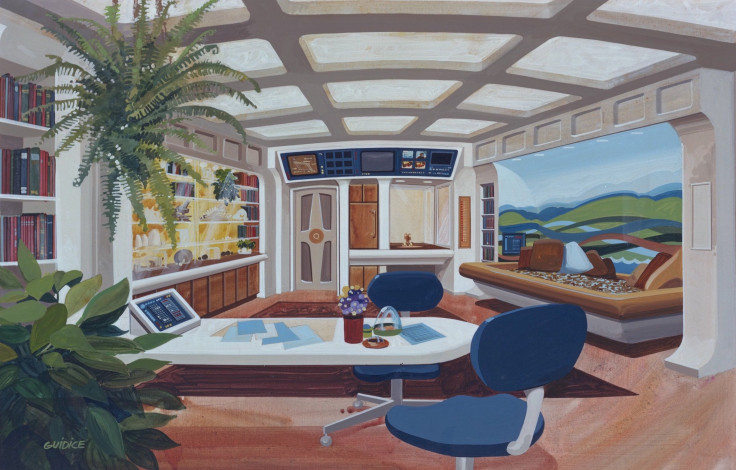How Humans On Mars Could Evolve Into A New Species

Mutants like the X-Men might be much more likely to emerge in a human society living on another planet than here are on Earth, because radiation can really mess with evolution.
Space agencies and private companies like Elon Musk’s SpaceX are trying to make space travel more sustainable, learn about how the human body responds to long-term microgravity conditions and isolation and figure out how to grow crops in outer space, among other exercises — all as people set their sights on places like Mars to explore and colonize. But what will happen to us once we get there? It’s possible the first settlers will evolve into a new human species entirely, given enough time.
On Earth, that amount of time is somewhere between thousands and millions of years, according to anthropologist John Hawks, a professor at the University of Wisconsin-Madison.
Read: Humans in a Space Colony Will Create a New Race
The ancient humans who migrated 50,000 years ago to what is now Australia — back when it was still connected to more northern landmasses — and eventually descended into the aboriginal tribes that live there today, didn’t have enough time to become a new species. In Tasmania specifically, Hawks points out, they lived in partial isolation before being completely cut off from the rest of humanity for millennia when sea levels rose at the end of the last ice age, about 10,000 years ago, and their land bridge to mainland Australia sunk. Despite this long-term separation, it wasn’t long enough; the Tasmanians didn’t develop into a new species. The human species on Flores did, however.
When Hawks points to Flores, he’s referring to the “hobbit” species, Homo floresiensis, that spent about 1 million years on the Indonesian island and evolved separately from an ancient human ancestor into a short-statured community that could have been alive as recently as 55,000 years ago. The problem is that it’s unclear when in their million-year journey on Flores they became this new species.
“What we don’t know is how much of that time was necessary for it to happen,” Hawks told International Business Times. “But a million years … looks like it’s enough time.”
That’s on Earth. On Mars, which doesn’t have as thick of a protective atmosphere Earth does, radiation is beaming down much stronger.
“Cancer rates might be higher, but at the same time mutations are the raw material for genetic variation,” Scott Solomon said.
Solomon is an evolutionary biologist and science writer who has explored the future of human evolution. He speculated that on Mars, the increased radiation might actually speed of evolution because there would be more genetic mutation.
“If we can survive, a higher mutation rate means there will be more variation entering the gene pool with each generation,” he told IBT.
It wouldn’t take a single generation on Mars to sire people with superhuman abilities, but even doubling the rate of evolution would be significant. Those mutations could be random, “but random chance is what separates most species from one another,” Hawks explained.
Compounding the effect is the fact that in such a drastically different environment, natural selection would heavily favor genes that gave one person an edge over another.
Read: Early Life on Earth Looked Like Swimming Bathmats
But developing into a separate species of human is not necessarily a bad thing. At least it’s not as big a problem as inbreeding, which is a possible danger to a human colony on Mars or elsewhere in the universe that doesn’t have enough volunteers. For small populations — Hawks estimates the cutoff around 1,000 people — detrimental genes are a serious threat, because they don’t cycle out in the same way they do in larger populations.
“You have to think about how you’re going to avoid inbreeding,” he said. If you can’t increase the population size, there may have to be a “systematic breeding scheme” to pair up people with the most genetic variety. “You would need to have rigorous rules about who mates with whom.”
Alternatively, he recommended bringing along something akin to “a giant vat of sperm” to broaden the gene pool.
For his part, Solomon suggested a system like on Noah’s ark, in which the people organizing a space colony and approving members “take one of everybody” to make sure all the diversity of human genes is represented.
These sound like problems that can simply be avoided by preventing space settlers from becoming isolated from the rest of humanity, but it’s possible that we don’t have a choice in the matter — living on another planet could destroy their immune systems, making it dangerous for them to mingle with anyone from Earth or ever return to their home planet. More on that coming soon.
© Copyright IBTimes 2024. All rights reserved.





















